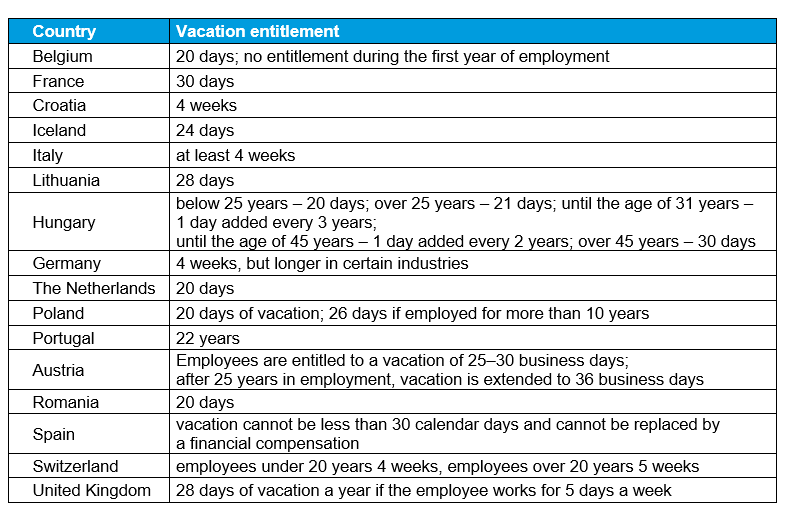Holidays are in full swing, which means it is a good time to remind you of the rules for using your vacation time, particularly from last year.
It is very common, particularly with management positions, sales representatives etc., that the employer is unable to provide to these employees a vacation time long enough to use up all their time from this and possibly even last year.
We have prepared a summary of the rules for proper use of your vacation time
If the use of your vacation time (or its part) is not determined on the latest by 30 June of the next calendar year, the employee becomes entitled to determine their own use. Vacations must be announced in writing to the employer at least 14 days in advance, unless you both agree otherwise.
Determining the use of your vacation time by the employer may also include situations in which the employer determines how it will be used by 30 June of the next calendar year, even if the vacation itself should happen after this date, e.g. during holidays, around Christmas etc. The decisive factor is whether the employer has determined how vacation time will be used by 30 June of the following year and not the date of the vacation.
Generally speaking, every employee is entitled by law to at least 20 days of vacation per year. This may of course include vacation time from the previous year. The ideal situation is when employees use up 14 days in a row, i.e. 10 business days, if the company’s working mode allows it. If the vacation is used up in individual days, there is a risk that the employee will not be rested enough, which increases the risk of occupational injuries for which the employer may bear responsibility precisely because of this violation of the Labour Code.
The rule still applies that you can transfer your unused vacation time to the next year without any limitations.
The situation is different if employment is terminated
Employees who haven’t used up the vacation time that they were entitled to because of termination of their employment have the right to a compensation. In fact, this is the only situation in which the employer may compensate for vacation time instead of this time being used according to Section 222 (2) of the Labour Code (in Czech): An employee is entitled to compensatory wage or salary for leave not taken only on termination of his or her employment relationship.
Conversely, if you exceed your vacation time by the time your employment is terminated, the employer has the legal right to withhold a sum corresponding to the days of vacation over limit.
If you’re interested, here’s an overview of statutory vacation in selected countries of the world.

We will be glad to take care of your payroll for you. Let us know and we will help you.






